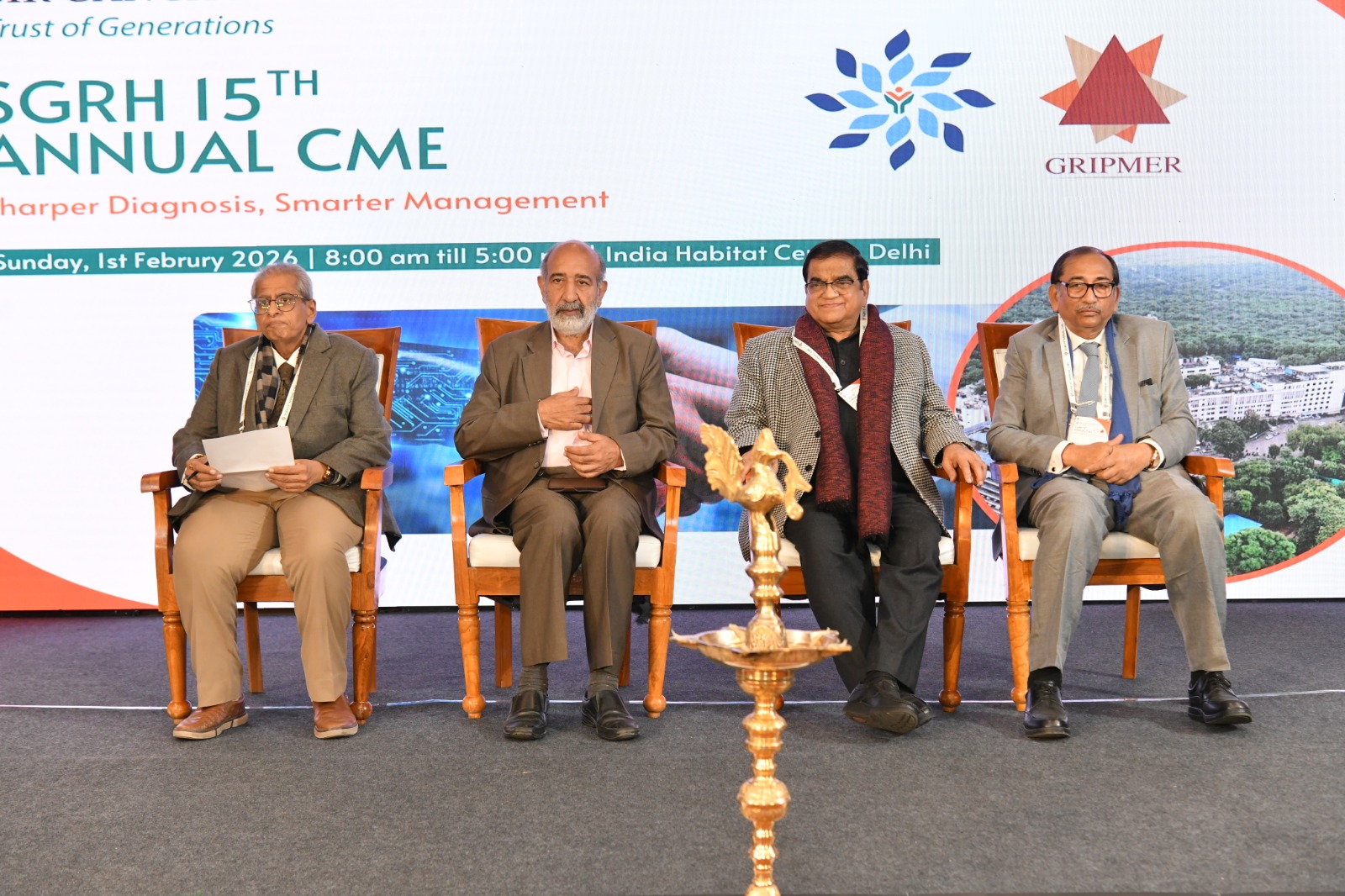 New Delhi: Doctors at Indraprastha Apollo Hospitals, New Delhi, successfully performed a bone marrow transplant of a 17 month old Filipino baby, for what can be called as world’s first ever case of a novel mutation in blood (NF-E2).
New Delhi: Doctors at Indraprastha Apollo Hospitals, New Delhi, successfully performed a bone marrow transplant of a 17 month old Filipino baby, for what can be called as world’s first ever case of a novel mutation in blood (NF-E2).
The baby had been bleeding profusely immediately after his birth. The doctors noticed that the child was suffering with incessant bleeding from his mouth and abdomen, due to progressively falling platelet levels. The diagnosis was unclear and even after regular platelet transfusion there was no sign of recovery in the child’s condition. Consequently the child was getting weaker by the day and with continuous loss of blood his life was under threat.
For further treatment he was referred to a centre in Dubai, UAE where a team of doctors conducted genetic analysis on the child which revealed that he was suffering from a novel blood mutation called NF-E2. NF-E2 is a congenital defect which is characterized by abnormally low platelet levels, hence the bleeding manifestations in the child posing a threat to his life. The child was put on blood transfusions in Dubai, but the doctors knew that a successful Bone Marrow Transplant was the last hope for the child’s survival.
The father of the child said, “From the first day of his birth our child had been suffering. With excess blood loss, followed by platelet and blood transfusion our baby had become weak and unlike other 1 year old children of his he wasn’t developed enough to even walk. We were initially apprehensive of a Bone Marrow Transplant but when the doctors told us that it was the last chance of saving our child we agreed and we are so glad that we did. “
As a first of its kind case to have ever been reported in the world (first published in British Journal of Hematology), the doctor’s in Dubai were not fully equipped to conduct a procedure for Bone Marrow Transplant for such a condition. Hence they referred him to India to Dr Gaurav Kharya, Clinical Lead, Centre for Bone Marrow Transplant and Cellular Therapy & Senior Consultant, Pediatric Hematology, Oncology and Immunology, Indraprastha Apollo Hospitals, New Delhi.
While planning this Bone Marrow Transplant the biggest challenge was understanding how this novel mutation would behave during the procedure as a number of mutations react to chemotherapy drugs in a very different manner.
Dr Kharya, who was leading this case, said, “When the child was brought to us, he had undergone multiple cycles of blood transfusion. As there was noHLA (Human Leukocyte Antigen) compatible donor in the family, we did a half match bone marrow transplant with his mother as a donor. This was a very rare case due to the novel blood mutation (NF-E2).
While we did a successful bone marrow transplant procedure, the difficulties of the child did not end. After 60 days post-transplant we noticed that the graft received from his mother is coming down and child’s own defective bone marrow is trying to take over. We had to then transfuse some immune cells from the mother to the child at ever 2weekly intervals and it was only after 4 weeks post-transplant that the bone marrow started functioning normally.”








